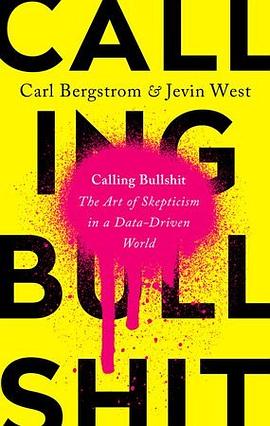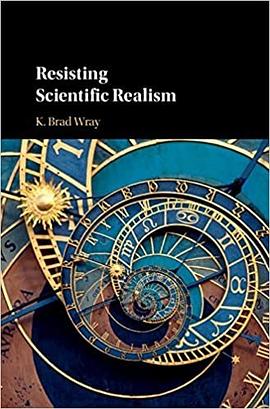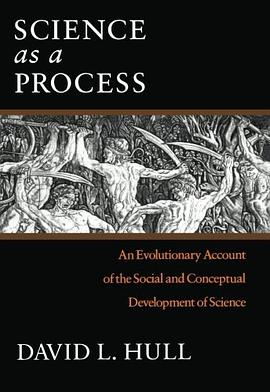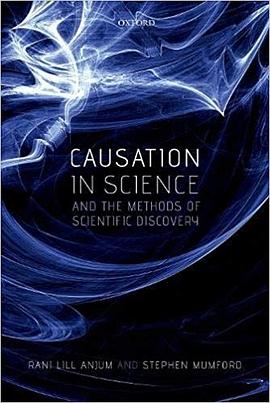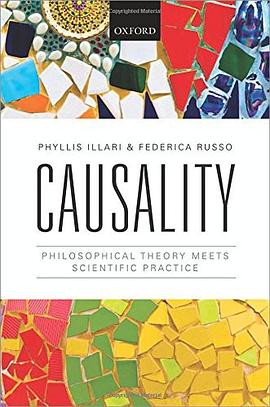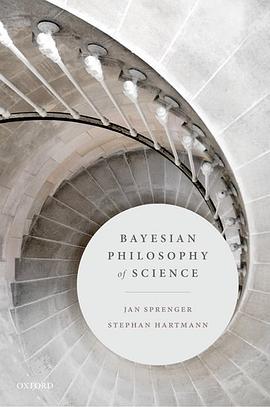

具体描述
Shows the value of the Bayesian methodology for the addressing the core issues in the field
Provides clear, comprehensive, and accessible explanations
Discusses a wide range of questions, from philosophical foundations to practical applications in science
Combines mathematical modeling with conceptual analysis, simulations, case studies, and empirical results
How should we reason in science? Jan Sprenger and Stephan Hartmann offer a refreshing take on classical topics in philosophy of science, using a single key concept to explain and to elucidate manifold aspects of scientific reasoning. They present good arguments and good inferences as being characterized by their effect on our rational degrees of belief. Refuting the view that there is no place for subjective attitudes in 'objective science', Sprenger and Hartmann explain the value of convincing evidence in terms of a cycle of variations on the theme of representing rational degrees of belief by means of subjective probabilities (and changing them by Bayesian conditionalization). In doing so, they integrate Bayesian inference—the leading theory of rationality in social science—with the practice of 21st century science. Bayesian Philosophy of Science thereby shows how modeling such attitudes improves our understanding of causes, explanations, confirming evidence, and scientific models in general. It combines a scientifically minded and mathematically sophisticated approach with conceptual analysis and attention to methodological problems of modern science, especially in statistical inference, and is therefore a valuable resource for philosophers and scientific practitioners.
作者简介
Jan Sprenger, University of Turin, and Stephan Hartmann, LMU Munich
Jan Sprenger is Professor of Philosophy of Science at the University of Turin. After completing an undergraduate degree in mathematics, he obtained his PhD in Philosophy at the University of Bonn in 2008. He then took up a post at Tilburg University, first working as Assistant Professor (2008-13) and subsequently as Full Professor (2014-17). He also directed the Tilburg Center for Logic, Ethics and Philosophy of Science (TiLPS). Sprenger's research and publications span a wide range of topics, mainly in philosophy of science and uncertain reasoning, but also in logic, group decision-making, and empirical work on human cognition.
Stephan Hartmann is Professor of Philosophy at LMU Munich, Alexander von Humboldt Professor, and Co-Director of the Munich Center for Mathematical Philosophy (MCMP). Between 2007 and 2012 he worked at Tilburg University, where he was Chair in Epistemology and Philosophy of Science and Director of the Tilburg Center for Logic and Philosophy of Science (TiLPS). Prior to this, he was Professor of Philosophy at the London School of Economics and Director of its Centre for Philosophy of Natural and Social Science. He was President of the European Philosophy of Science Association (2013-17) and President of the European Society for Analytic Philosophy (2014-17). Hartmann's primary research and teaching areas are philosophy of science, philosophy of physics, formal epistemology, and social epistemology. His current interests also include the philosophy and psychology of reasoning and argumentation.
目录信息
1: Theme: Bayesian Philosophy of Science
2: Variation 1: Confirmation and Induction
3: Variation 2: The No Alternatives Argument
4: Variation 3: Scientific Realism and the No Miracles Argument
5: Variation 4: Learning Conditional Evidence
6: Variation 5: The Problem of Old Evidence
7: Variation 6: Causal Strength
8: Variation 7: Explanatory Power
9: Variation 8: Intertheoretic Reduction
10: Variation 9: Hypothesis Testing and Corroboration
11: Variation 10: Simplicity and Model Selection
12: Variation 11: Scientific Objectivity
13: Variation 12: Models, Idealizations and Objective Chance
Conclusion: The Theme Revisited
· · · · · · (收起)
读后感
评分
评分
评分
评分
用户评价
这本书的名字,"Bayesian Philosophy of Science",光是听着就带着一种厚重感和严谨的学术气息,让人不由自主地对其内容充满了好奇和期待。我拿到这本书的时候,正值我对自己过去所学的科学哲学理论感到有些捉襟见肘之际。总觉得那些宏大的、基于逻辑归纳和证伪主义的论调,在解释科学实践的复杂性和不确定性时,显得有些苍白无力。特别是当我深入研究一些前沿科学领域,比如机器学习、高能物理的理论模型,或是气候变化这样需要整合海量不确定数据的领域时,我愈发感受到一种新的思维框架的必要性。 贝叶斯主义,这个我之前只是在统计学领域有所接触的概念,突然在我脑海中闪现。我想象中,这本书会像一位经验丰富的向导,带领我深入贝叶斯思想的核心,并将其巧妙地融入到对科学本质的探索中。我期待它能够解答一些困扰我已久的哲学问题:科学理论的“确信度”究竟是如何建立的?证据如何影响我们对理论的信念?在面对相互竞争的理论时,贝叶斯框架又如何指导我们做出选择?我想象中的作者,必定是一位对科学实践有着深刻洞察,同时又精通概率论和哲学思想的大家。他/她或许会从历史上的科学革命入手,分析那些伟大的科学家们,在不确定性中如何权衡证据,更新信念。 我特别希望这本书能够避免那种枯燥的、纯粹的哲学思辨,而是能够紧密结合实际的科学案例,用生动的语言和清晰的逻辑来阐释复杂的概念。我想象中的书页里,会充斥着诸如“先验概率”、“后验概率”、“似然函数”这些词汇,但它们并非冷冰冰的数学符号,而是被赋予了深刻的哲学含义,被用来解析科学知识的涌现过程。我希望它能让我看到,贝叶斯主义并非仅仅是一种数学工具,而是一种关于“信念更新”和“不确定性管理”的强大哲学范式,能够深刻地重塑我们理解科学认识论的方式。这不仅仅是对科学哲学理论的补充,更可能是一种革命性的视角,为我理解科学的本质和发展轨迹提供全新的钥匙。
评分这本书的书名《Bayesian Philosophy of Science》如同一个迷人的谜语,激发了我极大的探索欲望。作为一个对科学理论的建立和演进过程有着强烈兴趣的读者,我一直试图寻找一种能够解释科学进步背后深层逻辑的框架。传统的哲学方法,虽然提供了坚实的分析工具,但有时总觉得在处理科学实践的动态性和模糊性时,稍显滞后。尤其是在跨学科研究日益普遍,数据爆炸式增长的今天,我们面对的信息往往是碎片化、不完整的,甚至相互矛盾的。在这种背景下,如何形成一种可靠的、可更新的科学信念,成了一个迫切需要解决的问题。 我设想,《Bayesian Philosophy of Science》这本书,将不仅仅是一本关于概率论在科学哲学中的应用的著作,而更像是一次关于“不确定性中的理性”的深刻对话。我希望它能为我揭示,贝叶斯主义如何提供一种超越简单“真”与“假”二分法的认识论框架,让我们能够以一种更精细、更动态的方式来理解科学理论的“可信度”。我期待书中能够通过大量的历史案例,比如牛顿力学如何从早期不完备的观测中逐渐完善,或是量子力学在早期遭受的质疑和争议,来展示贝叶斯更新过程的强大生命力。 我想象中的作者,是一位能够将严谨的数学思想与深刻的哲学洞察完美结合的学者。他/她不会回避贝叶斯方法在实际应用中可能遇到的挑战,比如如何确定合理的先验分布,或是如何处理非数值化的证据。相反,我期待他/她能够以一种开放和批判的态度,探讨这些问题,并提供富有启发性的解决方案。这本书,在我看来,应当是一扇通往科学认识论新境界的大门,让我能够以一种全新的视角来审视科学知识的形成、发展和辩护,从而更深刻地理解科学的本质和魅力。
评分“Bayesian Philosophy of Science”这个书名,唤醒了我内心深处对科学知识构建机制的好奇。长久以来,我一直在思考,科学的可靠性究竟源自何处?当面对相互竞争的理论以及不确定的实验数据时,我们究竟是如何做出理性选择的?传统的逻辑和哲学方法,虽然提供了坚实的基础,但在解释科学实践的动态性和模糊性时,总感觉有些力不从心。 我深信,这本书将会为我提供一个强有力的哲学工具,来理解贝叶斯概率论如何在科学认识论中发挥关键作用。我期待它能够深入浅出地阐述“概率”作为度量信念强度的工具,以及“证据”如何通过贝叶斯更新机制来改变我们的信念。这不仅仅是一种数学公式的讲解,更是一种关于理性推理在不确定世界中的哲学重塑。 我特别希望,书中能用大量生动的科学史案例来佐证其论点。想象一下,通过对某些经典科学理论的演进过程进行贝叶斯式的分析,来展示科学进步并非是简单地“被证明”,而是通过不断地“更新信念”来实现的。我想象中的作者,必定是一位能够将严谨的数学思想与深刻的哲学洞察融为一体的大家。他/她会带领我思考,在科学的探索过程中,我们是如何从局部认知走向更全面的理解,而贝叶斯框架又如何在其中扮演着至关重要的导航者角色。这本书,对我来说,将是一次关于科学理性如何运作的深度剖析,一次对知识体系如何建立和动态演进的哲学探索。
评分“Bayesian Philosophy of Science”这个书名,光是听起来就带着一种理性的光辉和对科学本质的深度探究。我作为一个对科学理论是如何被构建、被修正,以及最终被接受(或拒绝)的过程充满好奇的人,一直觉得传统的科学哲学理论,虽然有其价值,但在解释科学实践的动态性和不确定性时,总觉得有些不够“接地气”。尤其是在当今这个信息爆炸、数据驱动的时代,科学研究往往面临着海量、混杂、甚至相互矛盾的证据,如何在其中做出理性的判断,显得尤为重要。 我迫切希望这本书能够向我展示,贝叶斯主义如何能够为我们提供一个更为精细、也更为灵活的框架来理解科学知识的形成过程。我设想,书中会深入探讨“概率”在科学推理中的核心地位,以及证据如何能够“更新”我们对某个科学命题的“信念程度”。这不仅仅是对统计学概念的运用,更是对一种全新的认识论的阐释,一种关于如何理性地处理不确定性的哲学。 我特别期待书中能够通过大量具体的科学史案例,来生动地说明贝叶斯思想是如何在科学研究的实践中发挥作用的。例如,可以分析某项重要的科学发现,是如何在证据不断积累的过程中,其贝叶斯后验概率逐渐升高,最终获得科学界的广泛认可。我想象中的作者,必定是一位能够将复杂的数学概念转化为清晰的哲学见解的智者。他/她会引导我深入思考,在科学探索的迷宫中,我们是如何凭借理性和证据,一步步逼近真相的,而贝叶斯方法又扮演了怎样的关键角色。这本书,对我来说,将是一次关于科学认识论的深刻启迪,一次对理性如何在不确定性中前行的哲学之旅。
评分《Bayesian Philosophy of Science》这个书名,仿佛是打开科学哲学领域一个全新视角的钥匙,让我对如何理解科学知识的形成和发展充满了期待。我一直认为,科学并非是固定不变的真理集合,而是一个在不断探索、修正和反思中前进的过程。然而,传统的科学哲学理论,有时在解释这种动态性和不确定性时,显得较为局限。 我渴望在这本书中找到对贝叶斯主义在科学哲学中的应用的深刻阐述。我设想,它能够向我揭示,如何通过概率来量化我们对科学理论的“信心”,以及如何根据新的证据来理性地更新这种信心。这不仅仅是一种数学方法,更是一种关于如何进行不确定性推理的全新认识论框架。 我特别期待书中能够包含丰富的科学史案例,用以具体展示贝叶斯思想在科学实践中的应用。例如,分析一个伟大的科学理论,是如何在证据不断积累的过程中,其贝叶斯后验概率逐渐提升,最终获得广泛认可的。我想象中的作者,定是一位将严谨的数学分析与深刻的哲学洞察巧妙结合的学者。他/她将引导我深入思考,在科学探索的迷雾中,我们是如何一步步接近真相的,而贝叶斯方法又扮演了怎样的关键角色。这本书,对我而言,将是一次关于科学理性如何运作的深度学习,一次对知识如何被构建和动态演进的哲学探索。
评分书名《Bayesian Philosophy of Science》本身就点燃了我内心深处对科学认知本质的好奇。我一直认为,科学进步并非一蹴而就的线性发展,而是一个充满试错、修正和不断接近真相的复杂过程。在我的求学过程中,我接触过不少关于科学方法的论述,比如波普尔的证伪主义,它强调了科学理论的可证伪性是其科学性的重要标志。然而,当我尝试将这种理论框架应用于解释现实世界的科学实践时,总会遇到一些难以逾越的障碍。例如,当一个理论的部分预测与观测数据不符时,是直接将其抛弃,还是在其中寻找可以改进和完善的空间? 我感觉,《Bayesian Philosophy of Science》这本书,正是我一直在寻找的那个能够填补空白的理论工具。我期待它能够深入浅出地阐述贝叶斯主义如何为我们提供一个更加灵活和精密的框架,来理解科学证据如何作用于我们的信念,以及我们如何根据新的证据来更新和调整我们的理论。我希望它能展示,贝叶斯方法如何能够量化我们对理论的“信心”,并将这种信心随着新证据的出现而进行概率上的更新。这就像一个精密的算法,能够帮助我们做出更明智的决策,而不是简单地接受或拒绝一个理论。 我非常期待书中能够有对具体科学领域案例的深入分析,比如在天文学中,如何根据新的望远镜观测数据来更新行星轨道的模型;或者在医学领域,如何根据临床试验的结果来评估新药的有效性。我想象中的作者,是一位能够将抽象的哲学概念与具体的科学实践生动地连接起来的智者。他/她会引导我思考,在科学研究的迷雾中,我们究竟是如何一步步逼近真相的,而贝叶斯主义又扮演了怎样的角色。这本书,对我而言,不仅仅是对科学哲学理论的阅读,更是一次关于如何进行理性思考和科学探究的深度实践。
评分《Bayesian Philosophy of Science》这个书名,在我看来,蕴含着一种对科学理性内核的深刻挖掘。我一直对科学如何“知道”其所“知道”的感到着迷,也曾对传统的科学哲学理论,如逻辑实证主义或证伪主义,在解释科学实践的复杂性时感到些许不足。尤其是在面对海量、多源、不确定性极强的数据时,如何进行有效的科学推理,如何评估不同理论的相对优势,显得尤为关键。 我期望这本书能够为我揭示,贝叶斯主义如何提供一个强大的、具有数学严谨性的框架,来处理科学认识中的不确定性。我设想,书中会详细阐述“概率”在科学推理中的核心作用,以及证据如何通过贝叶斯更新机制来影响我们对科学理论的信念强度。这不仅仅是一种统计方法的应用,更是一种关于“信念的度量”和“证据的作用”的哲学深刻理解。 我期待书中能够有对经典科学理论发展历程的贝叶斯式解读,例如,分析在特定历史时期,某个理论是如何在新的观测证据面前,其后验概率逐渐提升,最终取代旧的理论。我想象中的作者,一定是一位能够将高深的数学理论与生动的哲学洞察融为一体的大家。他/她会带领我思考,在科学的探索过程中,我们是如何从模糊的认知走向更加清晰的认识,而贝叶斯框架又如何在其中发挥关键的桥梁作用。这本书,对我而言,将是一次关于科学认知的深度对话,一次对理性如何在不确定世界中导航的哲学探索。
评分《Bayesian Philosophy of Science》这个书名,如同一声悠扬的召唤,瞬间就抓住了我的注意力。作为一名长期沉浸在科学研究中的探索者,我深知知识的建立和演进并非是静态的、一成不变的。相反,科学的世界是一个充满不确定性、不断变化和自我修正的动态生态系统。我曾多次在思考科学理论的“确信度”问题时感到困惑:我们究竟是如何从有限的证据中建立起对一个理论的信心?又是什么机制让我们在面对新的、甚至是矛盾的证据时,能够理智地调整我们的看法? 我预感,《Bayesian Philosophy of Science》这本书,将会为我提供一个全新的视角来审视这些问题。我期待它能够深入浅出地阐述贝叶斯方法的核心思想,并将其巧妙地应用于分析科学理论的确认、辩护和选择过程。我希望书中能够展示,贝叶斯主义如何帮助我们量化证据对理论的支持程度,并提供一种更新信念的系统性方法。这不仅仅是对科学认识论的理论深化,更可能是一种对科学实践的深刻反思。 我非常希望这本书能够避免空泛的哲学论述,而是通过生动的科学史案例,来具体展示贝叶斯思想的魅力。想象一下,通过对历史上重大科学发现的解析,来揭示科学家们是如何在不确定性中权衡证据,一步步构建和完善科学理论的。我期待作者能够用清晰的语言,引导读者理解“先验概率”、“后验概率”以及“似然性”这些概念在科学认识中的重要性。这本书,对我而言,无疑是一次关于科学理性如何运作的深刻探索,一次对知识是如何被构建和更新的哲学之旅。
评分《Bayesian Philosophy of Science》这个书名,如同为我打开了一扇通往科学认识论新维度的大门。我长期以来对科学理论的“确证”和“辩护”机制抱有浓厚兴趣,同时也常常对传统科学哲学理论在处理科学实践的复杂性和不确定性方面所显现出的局限性感到一丝困惑。在我的认知中,科学并非是僵化的知识体系,而是一个不断演进、自我修正的有机体,而这种演进的关键在于对新证据的解读和对现有理论的更新。 我殷切地期望这本书能够深入阐述贝叶斯主义如何为我们提供一个更为精确和动态的框架,来理解证据与科学信念之间的关系。我设想,书中会详尽地解释“先验信念”、“似然性”以及“后验信念”这些核心概念,并展示它们如何在科学研究的实际过程中,指导我们进行理性的概率更新。这不仅仅是一种数学工具的使用,更是一种关于如何度量和调整信念的哲学方法的阐释。 我尤其希望,书中能够结合丰富的科学史案例,来生动地解析贝叶斯方法在科学发展中的应用。例如,可以分析某个曾经备受争议的科学理论,是如何通过一系列的关键实验证据,其贝叶斯后验概率逐渐上升,最终成为主流的科学认知。我想象中的作者,一定是一位能够将抽象的哲学思辨与具体的科学实践巧妙结合的智者。他/她会引导我思考,在科学探索的漫长旅程中,我们是如何从不确定走向更清晰的认知,而贝叶斯框架又扮演了怎样至关重要的角色。这本书,于我而言,将是一次关于科学理性本质的深刻洞察,一次对知识是如何被构建和不断完善的哲学追问。
评分《Bayesian Philosophy of Science》这个书名,对于我这个一直以来对科学理论的建立和发展过程抱有浓厚兴趣的人来说,具有极大的吸引力。我常常思考,科学究竟是如何从模糊的猜测走向严谨的理论?在面对相互竞争的解释和不确定的证据时,科学家们又是如何做出选择的?传统的科学哲学理论,虽然提供了宝贵的分析工具,但有时总觉得在解释科学实践的动态性和不确定性时,稍显不足。 我满怀期待地认为,这本书将为我提供一个强有力的哲学框架,来理解贝叶斯概率论如何应用于科学认识论。我希望它能深入浅出地阐述“概率”在度量科学信念强度中的作用,以及“证据”如何通过贝叶斯更新机制来影响和修正我们的理论认知。这不仅仅是一种统计学方法的应用,更是一种对理性推理如何在不确定世界中运作的深刻哲学思考。 我尤其希望,书中能够大量引用和分析具体的科学史案例,来生动地展示贝叶斯思想在科学研究中的实际作用。例如,可以对某个科学理论的演进历程进行贝叶斯式的解读,分析在不同历史时期,证据如何影响科学家们对该理论的信念程度。我想象中的作者,一定是一位能够将高深的数学概念转化为清晰的哲学见解的大家。他/她会引导我深入思考,在科学探索的道路上,我们是如何从不确定走向更清晰的认识,而贝叶斯框架又扮演了怎样至关重要的导航者角色。这本书,对我来说,将是一次关于科学理性本质的深度启迪,一次对知识体系如何建立和动态演进的哲学追问。
评分 评分 评分 评分 评分相关图书
本站所有内容均为互联网搜索引擎提供的公开搜索信息,本站不存储任何数据与内容,任何内容与数据均与本站无关,如有需要请联系相关搜索引擎包括但不限于百度,google,bing,sogou 等
© 2026 book.wenda123.org All Rights Reserved. 图书目录大全 版权所有

